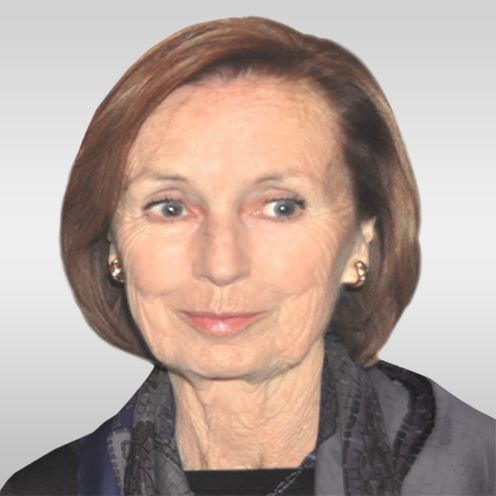
Annemarie Graeff
established the foundation in memory of her husband Prof. Dr. Henner Graeff in 2013 to promote science and research in the field of cancer research.

Professor Dr. Henner Graeff
Clinical and scientific career
Prof. Dr. Henner Graeff, born on April 19, 1934, studied medicine in Heidelberg, Innsbruck, and Berlin. After earning his doctorate in 1959 (Dr. med.), he began his medical career as a medical assistant at the Medical Clinic of the University of Heidelberg. Following brief professional positions at the Institute of Hygiene and the Surgical Clinic at the University of Heidelberg, he started his residency at the Women’s Hospital of the University of Heidelberg. In 1969, he received his “Board Certification in Obstetrics and Gynecology“ and completed his habilitation.
In 1967, Prof. Dr. Graeff began his scientific career as a post-doctoral fellow with an NIH grant at the Department of Obstetrics and Gynecology at the University Medical Center in New York, USA, in the research group of Prof. Dr. F. K. Beller. There, he studied the role of endotoxins in intravascular coagulation. The scientific results of his research were published in high-ranking scientific journals, including the journal Nature in 1967. He then followed Prof. Dr. Josef Zander, who had taken over the leadership of the Women’s Hospital at the University of Heidelberg in 1964 and was appointed director of the University Women’s Hospital of the Ludwig Maximilian University (LMU) in Munich in 1970. Over the 17 years of collaboration, he was significantly influenced by Prof. Dr. Zander’s clinical and scientific work in the field of translational cancer research. This led to his involvement in two „Sonderforschungsbereiche“ (SFB) at LMU: SFB51 “Medical Molecular Biology and Biochemistry” (1983-1990) and SFB207 “Basics and Clinical Significance of Extracellular Limited Proteolysis” (1991-1997), which were funded by the German Research Foundation (DFG). In 1975, Prof. Dr. Graeff was appointed as an associate professor and became a C3 professorship in 1978. During this time, he served as a senior physician and deputy director at the Women’s Hospital. In 1982, he was appointed Chair of Obstetrics and Gynecology at TUM, a position he held until his retirement in autumn 2000.
Scientific focus
He was particularly successful in the field of breast and ovarian cancer, focusing on the translation of basic research into clinical practice. His studies on the role of tumor-associated proteases in cancer progression and metastasis laid the groundwork for the development of new targeted cancer therapies. His scientific achievements are documented in over 500 scientific publications in high-ranking scientific journals. His impressive scientific work was presented to a broad scientific audience at numerous lectures at international conferences and workshops, many of which he also organized.
In 1992, the DFG initiated a Clinical Research Group (DFG #34) at the Women’s Hospital at the Klinikum rechts der Isar, which he led and was the first of its kind, quickly gaining high international scientific reputation. Additionally, Prof. Dr. Graeff received research funding from many other (inter)national funding programs, including the European Union, the German Cancer Aid, the Wilhelm Sander Foundation, and the Federal Ministry of Education and Research (BMBF). In 1997, he participated in the founding of the first spin-off company at the Medical Faculty of TUM, Wilex AG in Munich.

